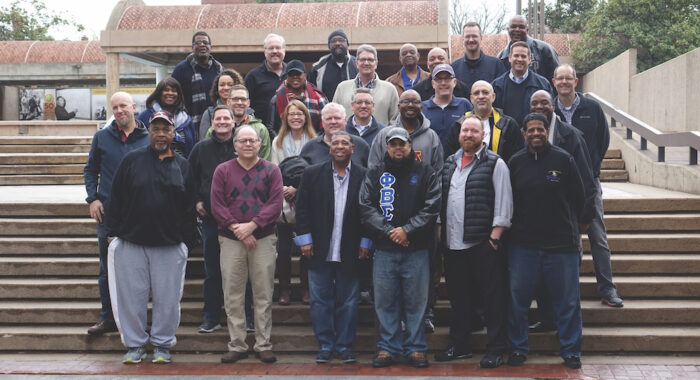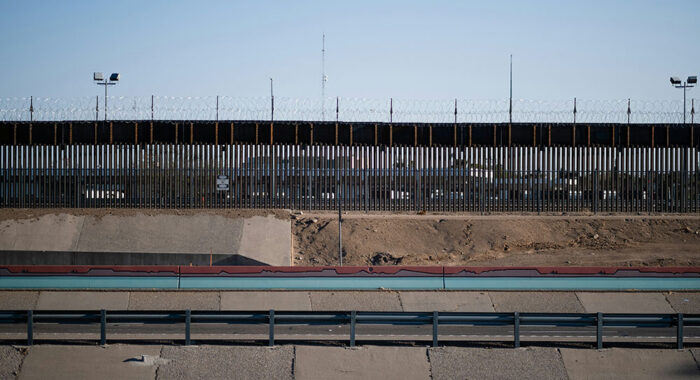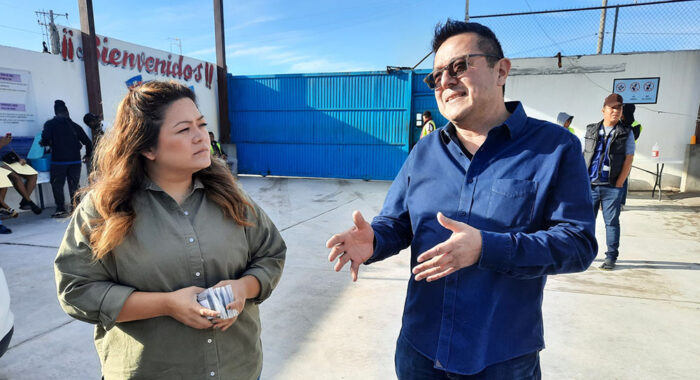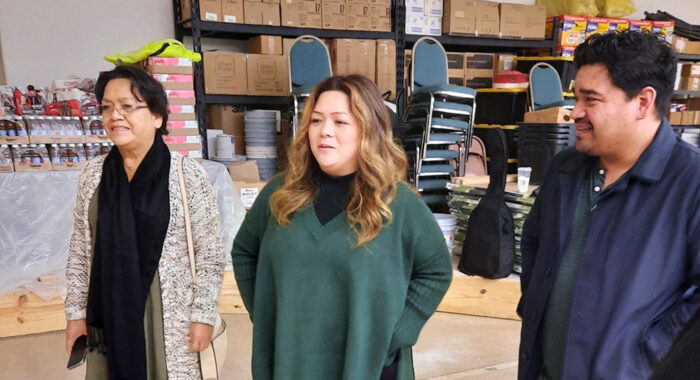Sam George, Ph.D., serves as the director of the Global Diaspora Institute at Wheaton College Billy Graham Center and as a global catalyst of the Lausanne Movement. He is of Asian Indian origin and has lived, studied and served in five countries, and currently makes his home in the suburbs of Chicago. He teaches and researches migration, diaspora missions and World Christianity globally. He has authored or edited 15 books, including a recent three-volume series on “Asian Diaspora Christianity.”
What is the role of immigration in shaping American churches?
America is an immigrant nation, and American Christianity is immigrant or diasporic at its core. The different waves of immigrants from many different shores of the world have led to different streams of churches in America. Over decades and generations, they have interacted with and borrowed from each other. Some joined the streams while others switched, abandoned or created new ones. So, we say American Christianity is diasporic, meaning we are all scattered people who gather with other scattered people to worship and live on God’s mission here and around the world.
How have the diaspora communities played a strategic role in the transformation of Christianity in the United States?
With the exception of Native Americans, we all are either immigrants or descendent of immigrants. Either we brought our unique strand of Christian faith to this land or embraced Christianity at the witness of Christians in the places of our settlement. As such, migratory displacement is a theologizing experience, and thanks to religious freedom in this country, all religions have been able to flourish and wane over time, though Christianity has gained the most adherents. Immigrants compare and contrast their inherited beliefs with those they encounter in the new places. The geocultural displacements make migrants into exceptional evangelists and missionaries, just as all foreign missionaries could be considered cross-cultural migrants.
What are the greatest strengths of the diaspora churches?
Most diaspora churches are made of Christians coming from places where Christianity is growing phenomenally (Asia, Latin America and Africa) and are bringing fresh vitality to the Christian faith in the West. The diaspora churches are globalizing the American church and the more global the American church is, the more globally connected, relevant and needed we will be.
How do diaspora churches think about multiculturalism in churches?
Most new diaspora churches in the West are transplanted “outposts” of cultural Christianity from different parts of the world with distinctive languages, cultures, traditions, spirituality and ecclesial ethos. However, when those language and cultural skills recede, and as spirituality and theological quests shift with subsequent generations, they fuse into the dominant language, culture and spirituality of the new place and time.
Christianity has been a heterogeneous and global faith since its beginning. As the gospel diffused across geographies and cultures throughout its history, Christianity always embraced others due to indigenization and translation principles. Our cultural familiarity, bias and prejudice should not isolate us in our respective silos where we consider our version of Christianity as the perfect one or superior to others. Homogeneity runs counter to the heterogeneous order that Paul advocated in his writing and that early Christians embraced.
How can the North American church engage with diasporas and the global church?
The North American church is the most global church on the planet on account of diaspora churches, though we remain isolated and ignorant of each other. We need to connect with those whom God has brought to our shores and neighborhoods in order to leverage those natural networks of relationship to engage the world.
The division of churches along national, racial, linguistic, ethnic and cultural lines has effectively blunted the witness of the Church in the world. We have relied more on the prevailing cultural norms and managerial principles to carry out God’s kingdom agenda here and globally. Our collective Spirit-filled witness is more powerful than our racialized, power, resource and task-oriented approaches. We must realize that North America is both a mission force and a mission field. Immigrant Christians can save us from our narrow, parochial, racialized and nationalized view of our faith.
North American churches must reimagine missions at home with the help of brothers and sisters from around the world who are here. This is vital to the future of Christianity in North America. We must look for and get acquainted with immigrants and learn from them, especially refugees, persecuted Christians and those from regions affected by our foreign policies, economic systems and climate change. We must not forget the cardinal rule in migration theories that ‘they are here because we were there.
Sam George serves as director of the Wheaton College Billy Graham Center Global Diaspora Institute and as a global catalyst of the Lausanne Movement. George worked in engineering and software technology for a decade in Asia and the United States, and then returned to his homeland of India to help pioneer two family mission organizations, Urban India Mission and Parivar International. With an expertise in global migration, diaspora missions and world Christianity, George has authored or edited over a dozen books and articles, including “Diaspora Christianities: Global Scattering and Gathering of South Asian Christians.” He earned his doctorate of theology from Liverpool Hope University, his master’s of business management from Birla Institute of Technology and Science and his master’s of practical theology from Princeton Theological Seminary.




 View All Articles
View All Articles 





























